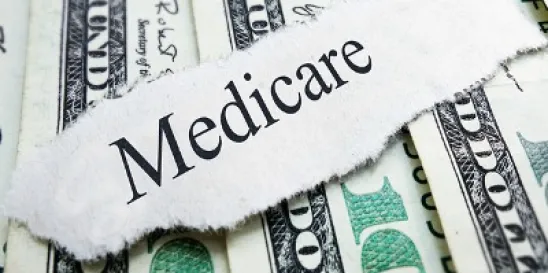On December 28, 2023, the Office of Inspector General (the “OIG”) issued a favorable Advisory Opinion (No. 23-15) (the “Opinion”) to a consulting vendor (the “Requestor”) that wanted to provide up to $75 in gift cards to physician practices in exchange for referring the Requestor’s practice optimization services (e.g., workflow and performance assessment, data analytics, and certain Medicare eligibility and performance assistance). Among other things, the Requestor: (i) did not itself provide any services that were eligible for reimbursement under any Federal healthcare program to any of its clients, (ii) did not have an ownership or investment interest in any entity that provided items or services paid for by any Federal healthcare program, and (iii) received compensation from the physician practices that did not vary based on whether the physician practices received a greater or lesser reimbursement from Medicare based on the Requestor’s services. The Opinion concluded that this proposed arrangement would not generate prohibited remuneration under Section 1128B(b) of the Social Security Act (the “Act”), also known as the Federal Anti-Kickback Statute (“Anti-Kickback Statute”), and thus OIG would not impose administrative sanctions under Section 1128A(a)(7) (exclusion) or Section 1128(b)(7) (civil monetary penalty) of the Act on the Requestor. As always, the Opinion stipulated that it may only be relied on by the Requestor on the specific facts presented to OIG, and that certain state and federal laws may continue to limit similar arrangements. However, the Opinion indicates that the tight scope of potential marketing options for physician practice vendors could expand a bit for those who are similarly situated to the Requestor.
1. What Facts Applied to the Requestor and its Relationship with Physician Practices?
The OIG explained that the Requestor provides consulting services for practice optimization to physician practices (i.e., workflow assessment, data analytics, electronic health record consulting, compliance monitoring, biannual Medicare Merit-Based Incentive Payment System (“MIPS”) eligibility checks, annual MIPS-related training, auditing MIPS-related performance measures, and MIPS data submission support). In the proposed arrangement, the OIG considered three potential streams of remuneration: (i) Requestor’s physician-practice customers paid for Requestor’s consulting services, (ii) Requestor’s physician-practice customers may have received higher MIPS reimbursements from Medicare in connection with those services, and (iii) Requestor proposed providing a $25 gift card to its existing physician practice customers who recommended the Requestor’s services to other physician practices, plus an additional $50 gift card for any successful referrals.
The Requestor certified four key facts about itself to the OIG in seeking the Opinion: (i) the Requestor does not recommend the purchasing, leasing or ordering of any item or service for which payment may be made under a Federal health care program (an “FHCP”); (ii) none of the Requestor’s services are paid for, in whole or in part, directly or indirectly, by a FHCP; (iii) the Requestor would not provide any items or services outside of this referral arrangement that may be paid for, in whole or in part, directly or indirectly, by a FHCP, and (iv) Requestor does not have an ownership or investment interest in an entity that provides items or services that are paid for, in whole or in part, directly or indirectly, by a FHCP.
2. How Did OIG Interpret the Facts to Reach a Favorable Opinion Here?
The Opinion determined that the three potential streams of remuneration in Requestor’s referral arrangement do not implicate the Anti-Kickback Statute, and therefore, the OIG would not impose administrative sanctions because Requestor certified that its services do not and will not use FHCP funds nor recommend services that are reimbursable with FHCP funds under its referral arrangement. Specifically, the OIG reasoned that:
- First, the gift cards provided to customers would never be in return for referrals of services that are reimbursable by a FHCP (i.e., because Requestor certified that it does not recommend or provide any items or services paid for through a FHCP or have an ownership or investment interest in any entity that receives payments from a FHCP);
- Second, Requestor does not recommend the purchasing, leasing or ordering of an item or service for which payment may be made under a FHCP (i.e., meaning that any payment that Requestor receives from physician-practice customers does not implicate the Anti-Kickback Statute); and
- Third, while Requestor’s consulting services may result in higher Medicare MIPS reimbursement for its physician practice customers, any remuneration those customers receive under the proposed arrangement would not be in return for referrals for any item or service paid under a FHCP.
3. How Should Physician Practice Vendors Evaluate Marketing Possibilities Now?
OIG’s Advisory Opinions are limited in scope to the particular facts outlined by, and may only be relied upon by, a given requestor, but interested parties can use them to inform their thinking on what they may or may not want to do in their own business in light of how the OIG thinks about different arrangements presented by requestors from time to time. The Opinion highlights that there may be a distinction under federal law between receiving remuneration for providing services that may cause an increase in a client’s FHCP reimbursement and actually receiving remuneration for recommending services or items that are paid for by a FHCP. By avoiding the technical prohibitions of the Anti-Kickback Statute, Requestor was able to have its proposed arrangement approved by the OIG. However, if Requestor’s arrangement directly or indirectly resulted in remuneration for referrals to providers for services reimbursable under a FHCP, then the OIG may have reached an unfavorable result.
Any physician practice vendor who is similarly situated to this Requestor in the Opinion might consider whether or not they could adopt or expand any existing referral reward programs, and whether or not it might want to seek an advisory opinion from OIG itself for a particular incentive payable to clients who are providers or suppliers enrolled in FHCPs. In considering any potential marketing ideas for customers who participate in FHCPs, vendors need to think about applicable state laws too. States also may have laws similar to the Anti-Kickback Statute. For example, New York law establishes criminal liability for receiving, offering, or paying any payment for referral of goods or services reimbursable by the state’s health care programs.[1] Similarly, California law establishes criminal liability for medical professionals who offer, deliver, or receive compensation for the referral of patients, clients or customers.[2] This means that a marketing practice permitted by Federal law or the law of another state may still be prohibited elsewhere. Given the significant federal and state penalties that can apply to impermissible relationships, it is worth vetting new possibilities thoroughly under all applicable laws before changing your marketing strategy.
FOOTNOTES
[1] N.Y. Soc. Serv. Law § 366-d(2).
[2] Cal. Bus. ProgProf. Code § 650; see also Cal. Welf. Inst. Code §14107.2(a)-(b).





 />i
/>i

